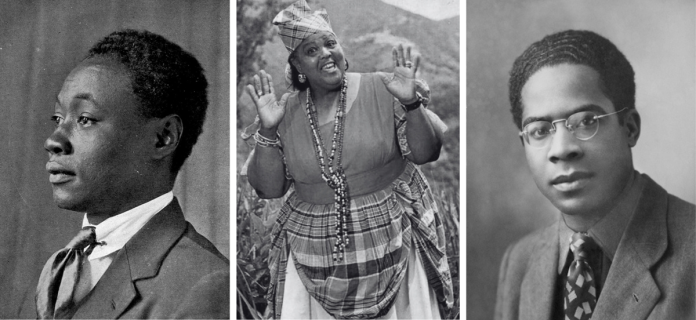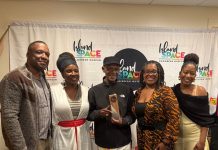
This April, we’re shining a light on some of the most influential Caribbean poets whose words have shaped literature and identity. From pioneers of post-colonial literature to contemporary voices breaking new ground, here are 5 must-know Caribbean poets whose work you need on your reading list.
Derek Walcott
Derek Walcott (1930–2017) was a Saint Lucian poet and playwright who brought the island to the world stage. Awarded the Nobel Prize in Literature in 1992, his most celebrated work, Omeros, is a sweeping epic that reimagines Homer’s Odyssey through the lens of Caribbean fishermen, slavery’s legacy, and postcolonial identity.
Walcott’s poetry captures the complexity of Caribbean life—its beauty, its struggles, and its deep cultural roots. His work blends influences from European literature with the oral traditions and history of the islands, creating a uniquely Caribbean literary voice.
Notable Works:
- Omeros – A modern Caribbean epic poem
- The Star-Apple Kingdom – A collection exploring identity and colonial history
- White Egrets – A late-career masterpiece reflecting on aging and memory
Louise Bennett-Coverley
Louise Bennett-Coverley (1919–2006), affectionately known as Miss Lou, was a Jamaican poet, folklorist, and cultural icon who revolutionized poetry by writing in Jamaican Patois. At a time when English was seen as the only “proper” literary language, she championed the authenticity of Patois (Creole), elevating it as a valid and powerful form of expression.
Through poetry, storytelling, and performances, Miss Lou captured the heart and humor of Jamaican life, inspiring future generations to embrace their linguistic heritage. Her work laid the foundation for reggae and dancehall artists, including Bob Marley, who carried her message of cultural pride into global music.
Notable Works:
- Jamaica Labrish – A collection of humorous, insightful poems in Patois
- Anancy and Miss Lou – Exploring the Anansi storytelling tradition
- Countless TV and radio performances that brought Jamaican folklore to life
Kamau Brathwaite
Kamau Brathwaite (1930–2020) was a Barbadian poet and scholar who revolutionized Caribbean literature by developing a style known as “nation language”—a rhythmic, oral-based poetry that reflected the speech patterns of the Caribbean. His work explored the African heritage of the region, the effects of colonialism, and the search for cultural identity.
His seminal trilogy, The Arrivants, is a poetic history of the Caribbean, tracing the forced migration of Africans and their resilience in the New World. Brathwaite’s unique use of language and typography created a visceral reading experience that felt like spoken word on the page.
Notable Works:
- The Arrivants – A three-part epic on Caribbean history
- Middle Passages – Examining the diaspora experience
- Born to Slow Horses – A powerful reflection on life and place
Claude McKay
Claude McKay (1889–1948) was a Jamaican-born poet and writer whose work was a cornerstone of the Harlem Renaissance, a cultural movement that reshaped Black literature and art in the early 20th century. His poem “If We Must Die” became a powerful anthem of resistance against racial violence, inspiring generations of activists and writers.
McKay’s poetry and novels captured the experiences of Black immigrants, the struggles against racism, and the longing for a sense of belonging. His works often contrasted the beauty of the Caribbean with the harsh realities of life in America, making him a literary bridge between the two worlds.
Notable Works:
- If We Must Die – A defining poem of defiance and strength
- Harlem Shadows – A collection that set the tone for the Harlem Renaissance
- Banjo – A novel exploring Black identity and diasporic connections
Aimé Césaire
Aimé Césaire (1913–2008) was a poet, playwright, and political leader from Martinique, best known as one of the founders of the Négritude movement—a literary and ideological movement that celebrated Black identity and rejected colonial oppression.
His most famous work, “Notebook of a Return to the Native Land,” is a deeply personal and politically charged poem that explores the pain of colonialism and the journey toward self-discovery. Césaire’s words have influenced civil rights leaders, postcolonial thinkers, and generations of Black poets worldwide.
Notable Works:
- Notebook of a Return to the Native Land – A defining text of Black consciousness
- Discourse on Colonialism – A fiery critique of European imperialism
- A Season in the Congo – A play about Patrice Lumumba and African liberation






























